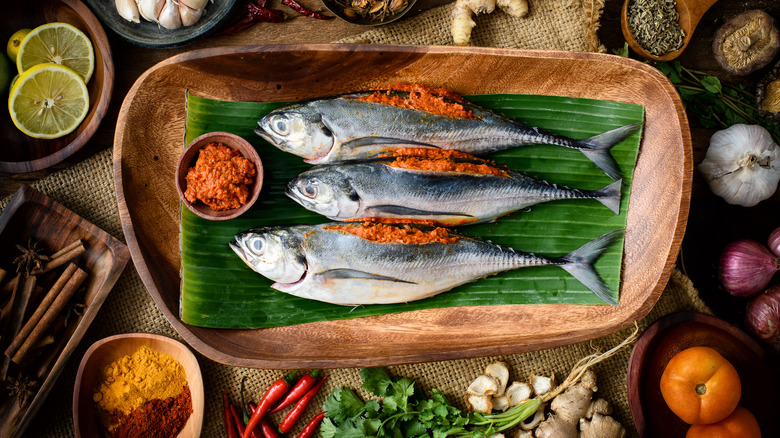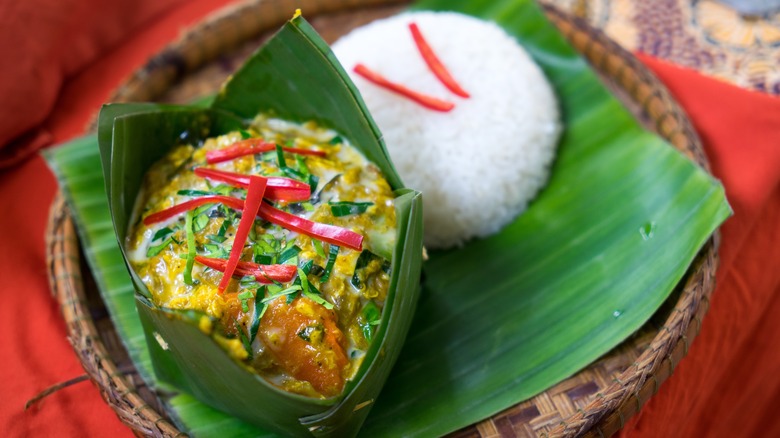Keep Fish Moist And Tender By Wrapping It In Banana Leaves
Head to tropical parts of the globe, and you'll find large banana leaves sold for culinary applications. Used in a diverse array of cuisines across Latin America, Africa, the Caribbean, and Asia, wherever these trees grow, their huge waxy green leaves are employed. And while the fronds themselves aren't edible, they cook a medley of ingredients to a succulent state.
And for an especially tasty candidate, try out fish. The protein's delicate flesh absorbs the gentle grassy notes of the banana leaf, all the while protected in the vegetal cocoon. It's a preparation style that melds well with different culinary methods; steaming, baking, grilling all function alongside the banana leaf. And for first time banana leaf cooks, there's no need for intimidation — the plant eases, rather than complicates, cooking.
The greatest benefit of a fish and banana leaf combo is the entrapment of moisture. Even if you decide to buy cheap fish, the wondrous fronds provide the extra assurance you won't be left with a dried-out, flavorless filet. Just this quality alone warrants a banana leaf purchase.
Fish and banana leaf delectably meld in various applications
Banana leaves aren't limited to one cooking style. For the easiest swap, think of them as the parchment paper method of baking fish, and wrap filets for the oven. Especially when the filling is smothered in marinade, the result comes out moist, flavorful, and eye-catching. Plus, you can prep portions individually per guest, leading to an enthralling hands-on dining experience.
The fronds also prove an excellent vessel for steaming, a more laborious option that yields a gentle result. A staple technique in Southeast Asian cooking, the green's structure enables infusion with steam, and thereby enhances aroma. So craft a classic dish like Cambodian fish amok — which marries fish, banana leaf, egg, and coconut milk — into a custard-like creation. Open a parcel of the steamed leaf, and it'll bloom with aromas.
Another terrific option is to throw banana-wrapped fish on the grill. Especially over coals, the banana leaf creates a smoker-like environment, imbuing complex fire-tinged aromas. Plus, you won't have to worry about sticking and burning, which is a common fear with fish on the grill. Such a preparation method is a popular street food in Thailand, where it's conveniently sold from market stalls.
Finding banana leaves can take some effort stateside; it's best to head to a specialty Asian or Latin American grocer. However, keep in mind some banana leaf swaps exist for tamales, so you might have substitution success with fish applications, too.

